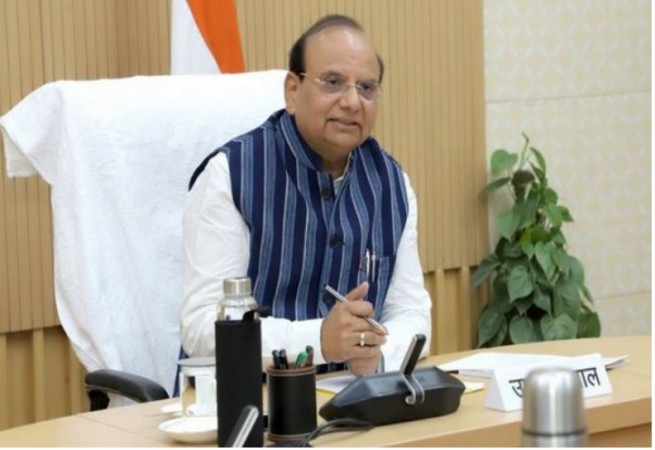
New Delhi: The Delhi Lieutenant Governor ordered the Chief Secretary to file an FIR on Saturday against Delhi Jal Board employees and others for theft of Rs 20 crore, said a statement.
The Lieutenant Governor further ordered that any officers or employees of the Delhi Jal Board who were involved in the aforementioned fund syphoning be identified, their roles assigned, and a report on the results of those assignments provided within 15 days.
As per the statement, amount totaling more than Rs 20 crore collected as water bills from individuals moved to a private bank account over DJB's bank account for many years in a flagrant act of corruption that resulted in significant financial losses to DJB.
In June 2012, the DJB issued an order appointing Corporation Bank as its banker to collect water bills on its behalf for a period of three years. After the fraud was deteched, the order was again renewed in 2016, 2017, and even in 2019.
With the knowledge of DJB executives and in complete violation of the conditions of the contract, the bank hired a private company, M/s Freshpay IT Solutions Pvt. Ltd., to collect cash and checks and deposit them in the DJB's bank account.
When Delhi CM Arvind Kejriwal served as the chairman of DJB, it was found that serious irregularities had occurred involving the bank's delayed or non-deposit of cash throughout the contract term from August 11, 2012, to October 10, 2019.
It was detectedthat despite being deposited by the customers, a sum of Rs. 20 crore (including interest, penalty, etc.) had not been put into the DJB's bank account. Despite being aware of all of this, the Board led by Kejriwal decided to extent Corporation Bank's contract till 2020, which in turn extended the contract of M/s Freshpay IT Solutions Pvt. Ltd., the bank's collection agent.
What is even more devastating is that the DJB not only extended their contract but also raised their service price from Rs 5 to Rs 6 per bill, refusing to punish the wrongdoing vendors by making them pay the stolen Rs 20 crore. Additionally, in a perplexing plot, DJB criminally loosened the T+1 (Transaction +1) norm, which required the vendor to deposit the money obtained from customers in the DJB bank account within 24 hours of collection. This let the vendors steal money.
The cash bills received from Delhi residents were later found to have been put in the Federal Bank rather than the DJB's bank account. From there, they were moved to one M/s Aurrum E-Payments Pvt. Ltd.'s private account.
The aforementioned arrangement, which involved depositing DJB's money in a third party's private bank account, was obviously outside the terms of the contract between DJB and Corporation Bank. The Corporation Bank had implicitly approved the aforementioned arrangement with the intention of syphoning money, and the executives of the DJB did not object despite knowing that it would put DJB funds at danger.
The fact that, despite the fraud coming to light, the DJB not only failed to take any action to collect the money and punish the guilty, but even clumsily extended the contract of the embezzlers by a further year, indicating prima facie connivance, has been seriously noted by LG.
DJB and Bank officials were aware of the Bank's failure to deposit the money obtained from the Kiosks from the beginning, but no attempt was ever taken to stop the Private Party's fraud or malpractice, which was being carried out with the tacit permission of the Bank and DJB authorities.
That the contract was further extended with the loose conditions despite such major flaws suggests dishonesty on the part of such officials with the aim of seriously harming DJB's financial situation. One is thus forced to ponder why the DJB did not perform the customary weekly reconciliation of its accounts.